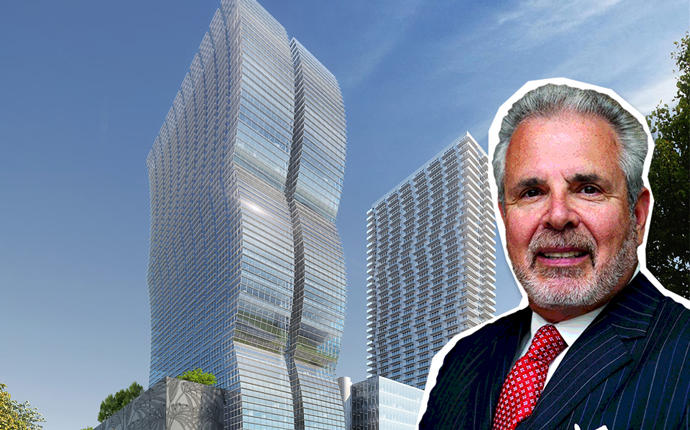Trending
Crescent Heights to begin construction of massive Edgewater project
The firm has spent roughly $44M assembling the properties

Developer Russell Galbut’s Crescent Heights acquired more land for the firm’s massive Edgewater development.
The AIDS Healthcare Foundation sold its building at 2900 Biscayne Boulevard to Crescent Heights’ 2900 Block Redevelopment LLC for $6.75 million. The property is in an Opportunity Zone.
Galbut said it is the last piece of land needed for the fully assembled site.
“Several pads within the overall development site should begin construction shortly,” he wrote via email.
In August 2016, AHF paid $4.8 million for the 5,200-square-foot building. The building operates as an AHF Wellness Center, which offers blood, HIV and STD testing, and a walk-in clinic, according to its website.
The AIDS foundation also owns the property at 2400 Biscayne Boulevard, which it acquired in 2017 for $6.8 million.
Crescent Heights is in the planning stages for the mixed-use project between Northeast 29th to 32nd streets and between Northeast Second Avenue and Biscayne Boulevard.
In all, affiliates of Crescent Heights have paid about $44 million for the majority of the land on those blocks. Last month, Crescent Heights paid $4.9 million for the 10,452-square-foot property at 2901 Northeast Second Avenue.
The Miami-based firm, led by Galbut, Sonny Kahn and Bruce Menin, plans to build 800 residential units and over 600,000 square feet of retail and office space on the overall assemblage.
But Crescent Heights does not own two parcels on Second Avenue and two along 29th Street. Records reveal that Daddy’s Jewelry Store owns 3025 and 3033 Northeast Second Avenue. Nearby, there is also the under-construction Chabad at Midtown.
Earlier this year, Crescent Heights requested the city redraw the property lines at 3000 and 3050 Biscayne Boulevard, revealing plans for the site. (One of the buildings on the property is home to The Real Deal’s office.)
Galbut is a big proponent of the Opportunity Zones legislation. The federal program gives tax incentives to developers and investors who invest in distressed areas throughout the country.
“We’re buying properties in all markets in Opportunity Zones,” he said in an interview with The Real Deal earlier this year. “That is huge in asset planning and multigenerational thinking.”




